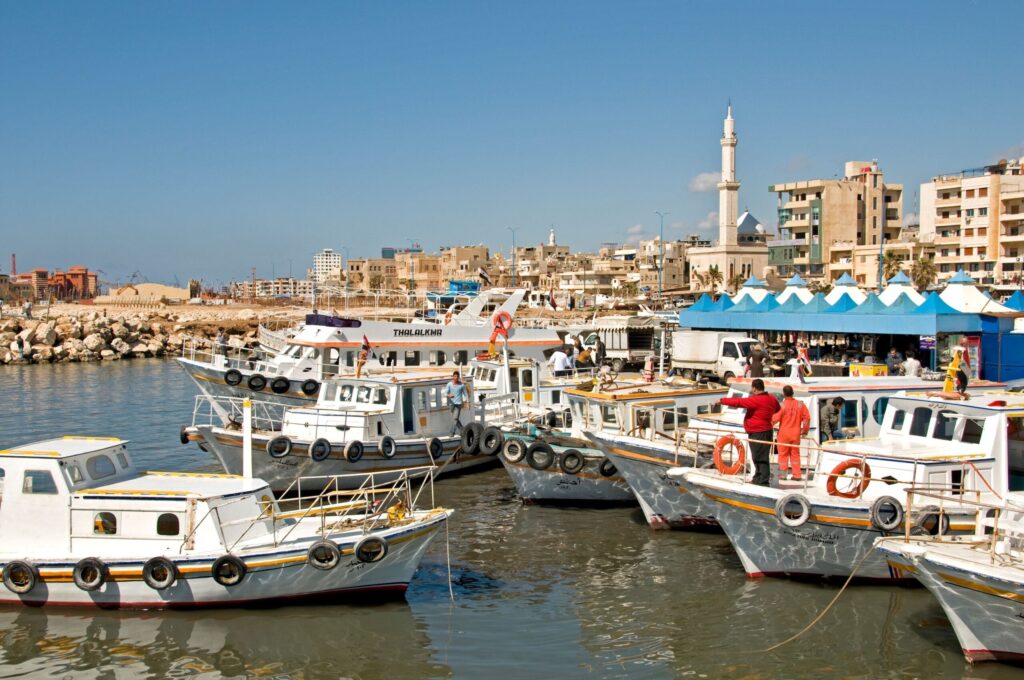President Trump’s momentous tour of the Gulf states featured a packed agenda of state visits, business meetings and contract announcements.
Unsurprisingly, the world’s media focused on the trillions of dollars of deals that were agreed upon in the aerospace, defence and advanced technology sectors.
However, just as important for the region’s logistics and supply chain industry were the talks between Trump and Syria’s interim president, Ahmed al-Sharaa, which took place in Saudi Arabia.
The meeting led to the recognition of the new Syrian government and the lifting of US sanctions, allowing the international community to finally assist in rebuilding the country’s war-ravaged infrastructure.
After years of conflict and underinvestment, reconstruction of Syria’s transport sector will be critical to integrating the country back into the world’s economic system.
GCC involvement had stalled due to the threat of secondary sanctions – risks heightened by the region’s reliance on the US dollar. That changed when President Trump reversed sanctions, opening the door for renewed Gulf engagement.
The UAE’s port-to-logistics giant, DP World, was among the first businesses to recognise the opportunities provided by the removal of US sanctions.
Almost immediately, it was announced that the Syrian government had signed a memorandum of understanding with the company to develop, manage and operate a terminal at Tartous, one of two main Syrian ports on the Mediterranean Sea.
Under the agreement DP World will reportedly commit $800 million to construct new terminals and transit hubs, work with the government to create Special Economic Zones and provide logistics services.
During the previous Assad regime, the port had been a base for the Russian navy and was run by a company with a 49-year lease, but this was terminated soon after the new Syrian government came to power.
Developing Tartous into a modern shipping centre will be essential for Syria’s links with the Mediterranean, connecting Turkey (a major supporter of the new government), Iraq, Jordan and the Gulf States.
The Carnegie Middle East Centre has estimated that the reconstruction of Syria will cost between $250 billion and 400 billion, the majority of this directed towards infrastructure redevelopment.
Consequently, the DP World announcement is likely to be the first of many as the Gulf states seek to reinforce their position at the heart of regional and global transport networks.
This is not the only investment in Syria’s maritime supply chains. Following the EU’s earlier removal of restrictive measures on the Syrian transport sector, the new government signed a 30-year deal with French shipping group CMA CGM to modernise, expand, and deepen the country’s largest port, Latakia. A further $260 million, including a new berth, will be invested in the port over the life of the deal.
Air and rail links
GCC investment is also likely to focus on the air transport sector, as well as shipping. In the early days of the new government, Qatar helped get Damascus airport up and running after years of lack of investment and maintenance.
Qatar Airways was the first airline to land at Damascus airport following the change in regime, although Turkey has also ramped up its involvement in an attempt to increase its influence with the new regime.
Syria could also provide an essential link in a rail network spanning the entire Middle East.
A $17 billion “development corridor” has been discussed, using parts of the historic Damascus to Medina railway. There is hope that the transport corridor will become a focus for investment in warehousing and logistics services along its length. However, as one commentator points out, more paperwork has been generated than track laid so far.
Trump also used his visit to Saudi Arabia to call for Iran to accept a new nuclear deal. His negotiating team met with an Iranian delegation in Oman and it has been reported that an outline of the proposal has been sent to Tehran for discussion.
The ramifications of a deal would be huge for the regional – and global – logistics and supply chain sector. The lifting of sanctions in 2016 led to a surge in foreign investment in Iran, led by South Korea, France and Germany, as well as its oil, gas and automotive industries.
Under normal circumstances a growing middle class, a diversified manufacturing base and Iran’s considerable wealth of natural resources represent a major opportunity for Western investors.
If relations between Iran and the US are normalised, the Gulf ports will welcome a surge in trans-shipment volumes and warehousing serving the market.
John Manners-Bell is CEO of Transport Intelligence Insight and founder of Foundation for Future Supply Chain



